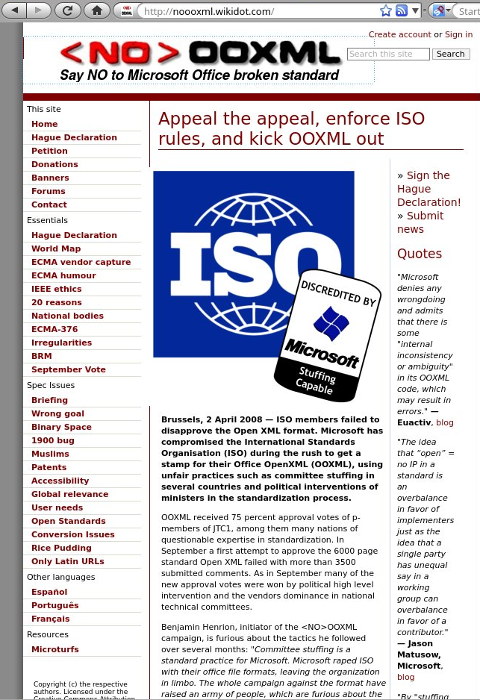

"Iancu was a pick of the notoriously corrupt Trump, whose firm had previously worked for Trump. Coincidence?"It is no secret that Director Iancu wrote articles in support of software patents and software patents are not valid anymore, based on what the SCOTUS has decided. This means that the person whom Trump put in charge of the patent office in inherently is disagreement with patent courts. An untenable situation? Iancu was a pick of the notoriously corrupt Trump, whose firm had previously worked for Trump. Coincidence?
Either way, everything we have seen so far confirms our worst fears -- that Iancu would work for the patent microcosm rather than for science and technology. The patent system was conceived to serve that latter group, not a bunch of lawyers, but things have changed since conception and nowadays the Office is adding yet more fees that make expensive lawyers a must to some. With prohibitive costs, too (maybe $200 per hour). Punishing poor companies, obviously.
Docket Navigator has been covering quite a few 35 U.S.C. ۤ 285 cases/motions lately, with some being successful, i.e. when some troll or bully made bogus claims it was punished financially for it. Those are the courts doing so, not the Office. In Phigenix, Inc. v Genentech, Inc. (based on this latest Docket Report), the court ended up considering the argument regarding frivolous patent lawsuits. Will the court make it more expensive to the abuser? That remains to be seen. "Following summary judgment," Docket Navigator wrote, "the court granted defendant's motion to join plaintiff's founder/inventor as a necessary party and pursue attorney fees against him under 35 U.S.C. ۤ 285."
Upcoming changes at the USPTO do not look promising however. For at least three reasons.
Firstly, the patent microcosm is being shielded from competition. "It is no secret to anyone in the industry; the unauthorized practice of law is rampant, and OED does nothing to stop it," Gene Quinn (Watchtroll) said yesterday. Terms like "unauthorized practice of law" (used both in the body and headline of Watchtroll) imply that it's illegal to represent oneself too. The patent and litigation 'industries' want a monopoly on this activity. A form of corruption surely? Consider Iancu's professional background and how he might view this.
Secondly, this Trump appointee would have loved to abolish PTAB and destroy patent quality, but SCOTUS and CAFC are not allowing that to happen. He'll still try though. He might even ignore Oil States and try to just price IPRs out of reach. Here's what Kevin E. Noonan, a patent maximalist, wrote a couple of days ago
On August 8th, the U.S. Patent and Trademark Office issued revisions to its Patent Trial and Appeal Board (PTAB) Guide (see "Trial Practice Guide Update"), first promulgated in 2012 as part of the Office's implementation of inter partes review (IPR), post-grant review (PGR), and covered business methods review (CBM) proceedings established under the Leahy-Smith America Invents Act (AIA). As discussed in an accompanying memorandum from USPTO Director Iancu, this update is part of the Office's plan to issue updates periodically, on section-by-section, rolling basis; the Director anticipates further future updates "to take into account feedback received from stakeholders, changes in controlling precedent or applicable regulations, or the further refinement of the Board's practices over time."
In addition to being a resource for petitioners and patent owners, the Guide has as its purpose "to encourage consistency of procedures among panels of the Board," akin to the role of the MPEP with examiners. As with the practice of having "expanded panels" to promote consistency in decisions, this function further limits the extent to which APJ's activities are consistent with an independent adjudicatory arm of the USPTO.
AIA Trial Practice Guide changes attracting the most attention are patent owners getting sur-replies and the opportunity to present a brief sur-rebuttal at the oral hearing, giving them the final word in PTAB proceedings
The USPTO is seeking across-the-board fee increases, as well as a new fee surcharge for filing in a non-DOCX format and an annual active patent practitioner fee